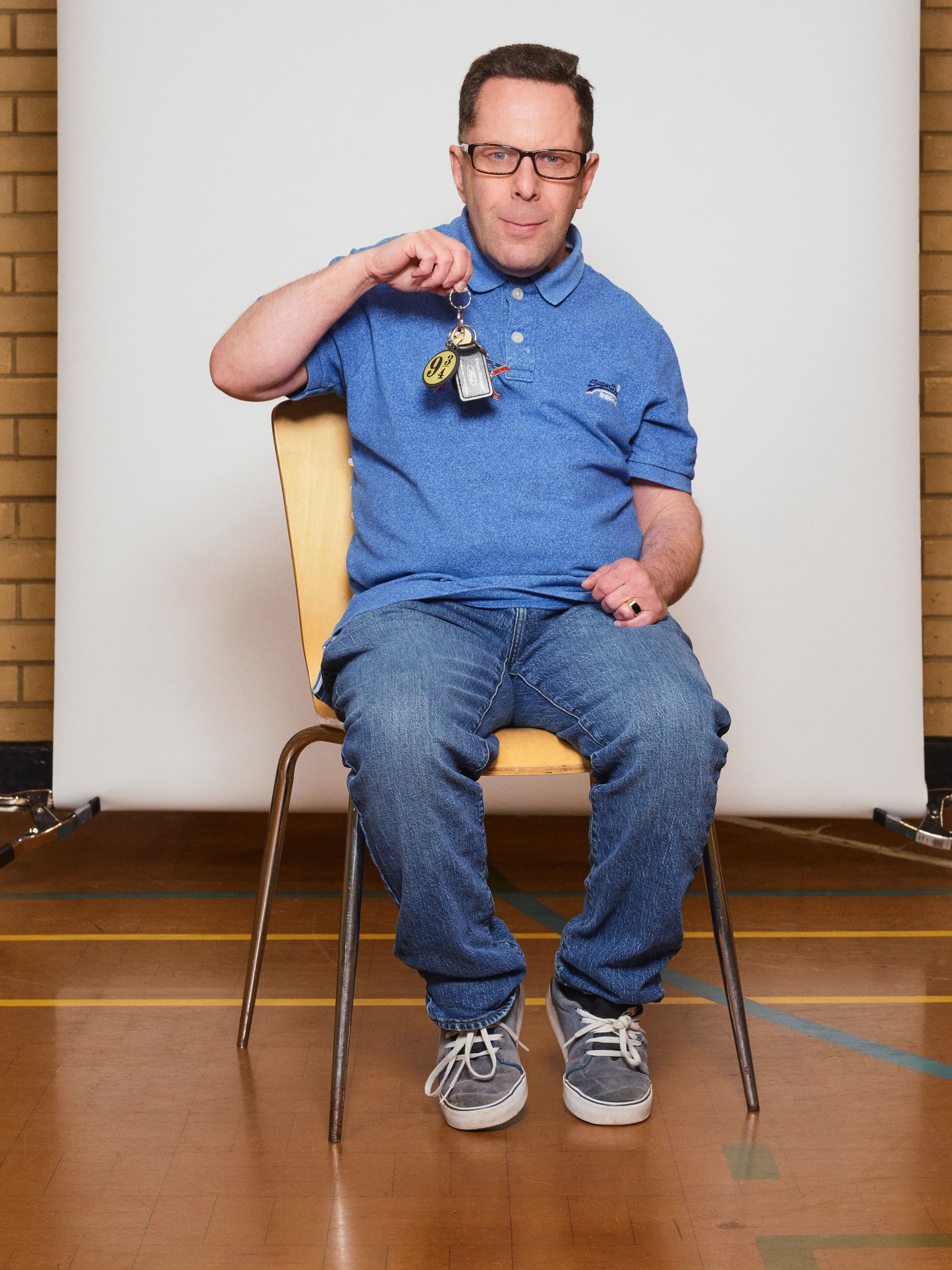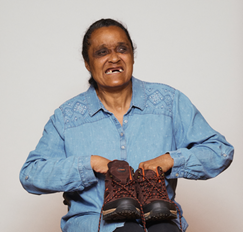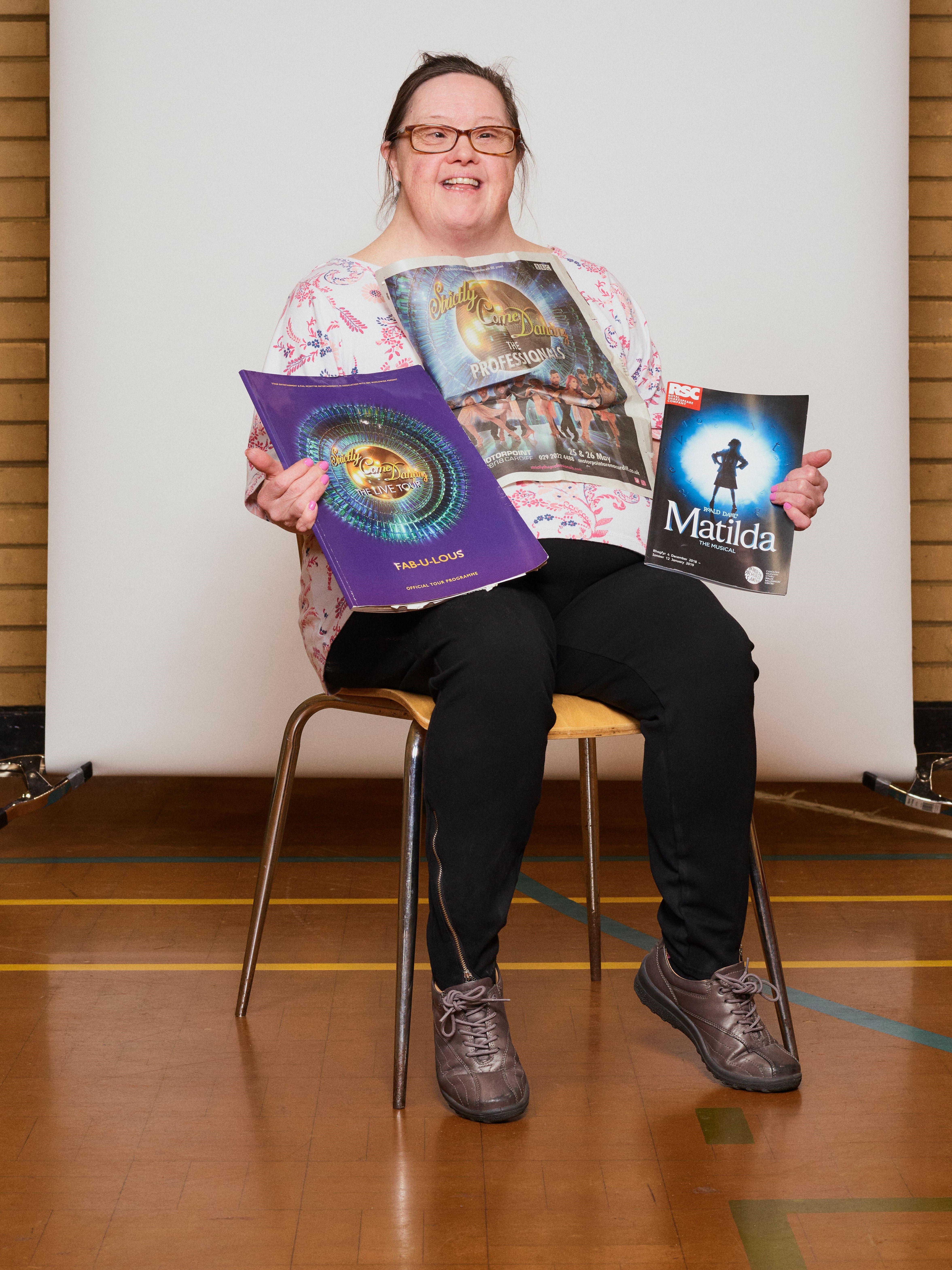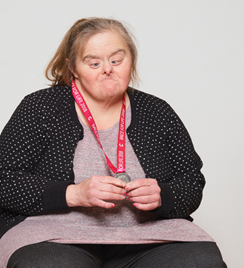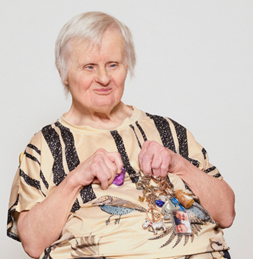
Credit: Emile Holba commissioned by Dimensions.
Not-for-profit support provider Dimensions is launching a new photography project, giving a platform for people with learning disabilities and autism to show their most prized possessions.
The project, being previewed in Cardiff today by Dimensions Cymru and is the first of its kind to explore how seemingly everyday objects can play a vital role in giving people with autism and learning disabilities agency and ownership over their lives.
Personal possessions help all of us develop a sense of ownership. Beyond owning the object in question, they have the power to bring back memories, provide comfort, and are a testament to the lives we live.
However, many people with learning disabilities and autism do not have the opportunity to gather objects of personal significance, and were coming to Dimensions for support with few or no possessions to call their own.
It was this realization that sparked the idea for the pioneering project. Dimensions has partnered with the people they support in Wales to curate their unique stories, and capture photos of them with an object that holds a real significance to them.
The project aims to help them tell their story and celebrate the “power of ownership” – over an object and over their own lives – and how the right support helps make this possible.
The exhibition is being previewed Tuesday 25th June, at the Chapter Arts Centre in Cardiff between 12pm and 4pm, before being launched to the public in July.
Russ Kennedy, Regional Director of Dimensions Cymru, said of the project:
“Everyone has objects that may seem mundane to others, but to us are more precious than gold. The knick-knacks many of us take for granted are evidence of lives well lived.
“Too often, we see people arriving at our services without any possessions. We never have to arrange a van to move someone’s belongings. This is why it’s incredibly important that we at Dimensions support people in a way that allows them to build ordinary lives and gather possessions that ultimately help tell their stories.”
Dave Lloyd
“These are the keys to my first car. I got it last year – it’s a bright red Vauxhall. I love my car, it gives me freedom to visit people. It makes me very proud to have independence.”
Wendy Enfields
Wendy Enfields doesn’t communicate using words, and, in the past, struggled with anxiety. The possession she holds most dear are her walking boots. Since Wendy has taken to hiking, her anxieties have reduced dramatically which has allowed her support workers to reduce her medication. Wendy is visibly happy whenever she sees her boots and she now walks a few miles every day – her support workers have helped to organise a walking holiday to Pembrokeshire and now they are planning a trip abroad.
Marie Alderman
Marie’s love for musical theatre is palpable. She said: “I’m into musicals big time, whenever I see a show it’s like my dream come true. I have been to see Grease recently which was amazing, and Hairspray at Cardiff Bay and Donny Osmond were good too. There are way too many good ones for me to choose an ideal show, but I would love to see the Lion King or a show in London.”
Geri Stephenson
Credit: Emile Holba commissioned by Dimensions
With the right support, people with learning disabilities and autism can gather memories, develop their personal goals, activities and pursue dreams and aspirations. Such was the case with Geri Stephenson, who wants to take life into her own hands. She designed her own take on a bucket list – ‘60 before 60’. Geri’s most significant object is her Race for Life medal – she struggles with walking and the medal is a happy reminder of her incredible achievement of walking the 5k.
Ros Mountjoy
Credit: Emile Holba commissioned by Dimensions
For Ros Mountjoy, the most important thing in her life is privacy. This is why her most meaningful object is her keys and keyrings, which gives her privacy to her bedroom. Ros collects keyrings that people have given her over the years. Her favourite one was given to her by a lady she meets every time she shops at her local Asda – they became close friends. The keyring is a photo of the two of them together, which means that when the lady is not working, Ros can still see her when she’s doing her shopping.

